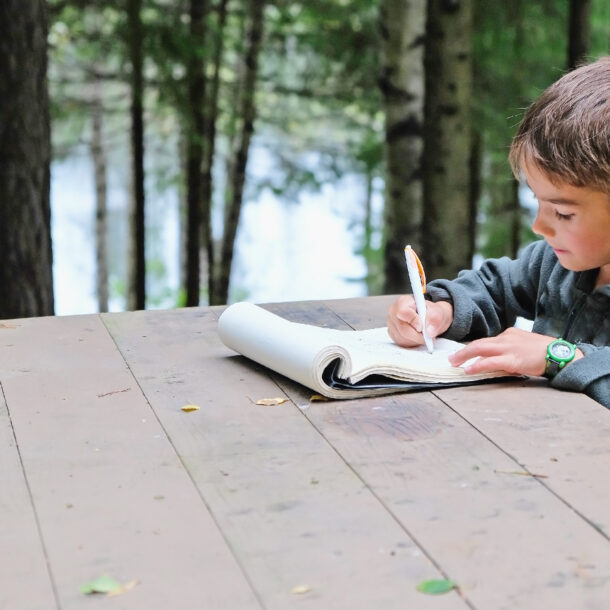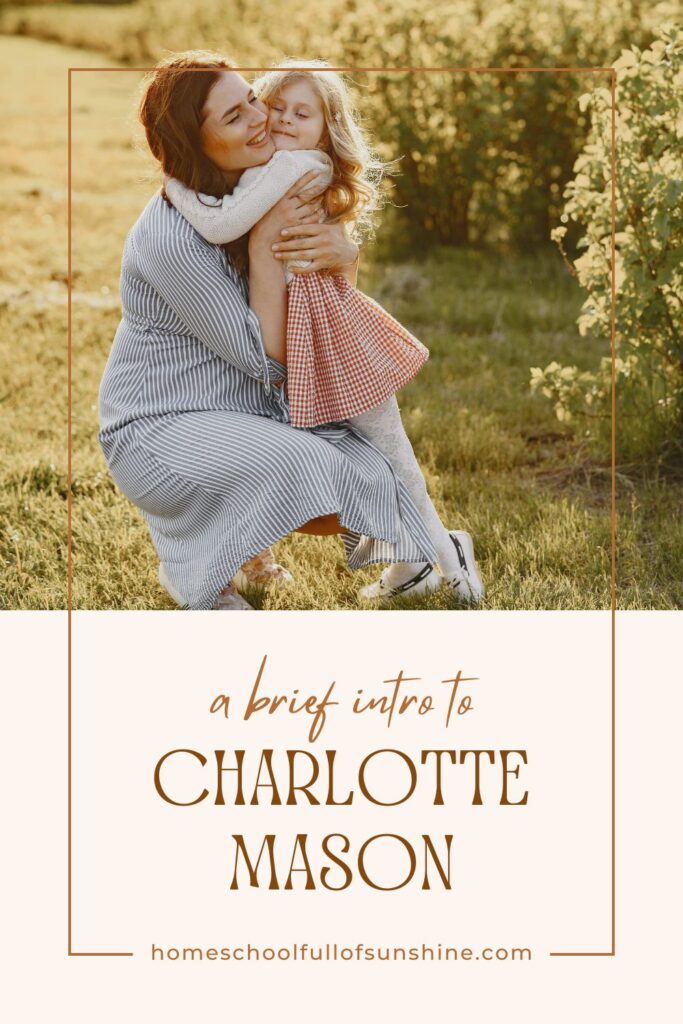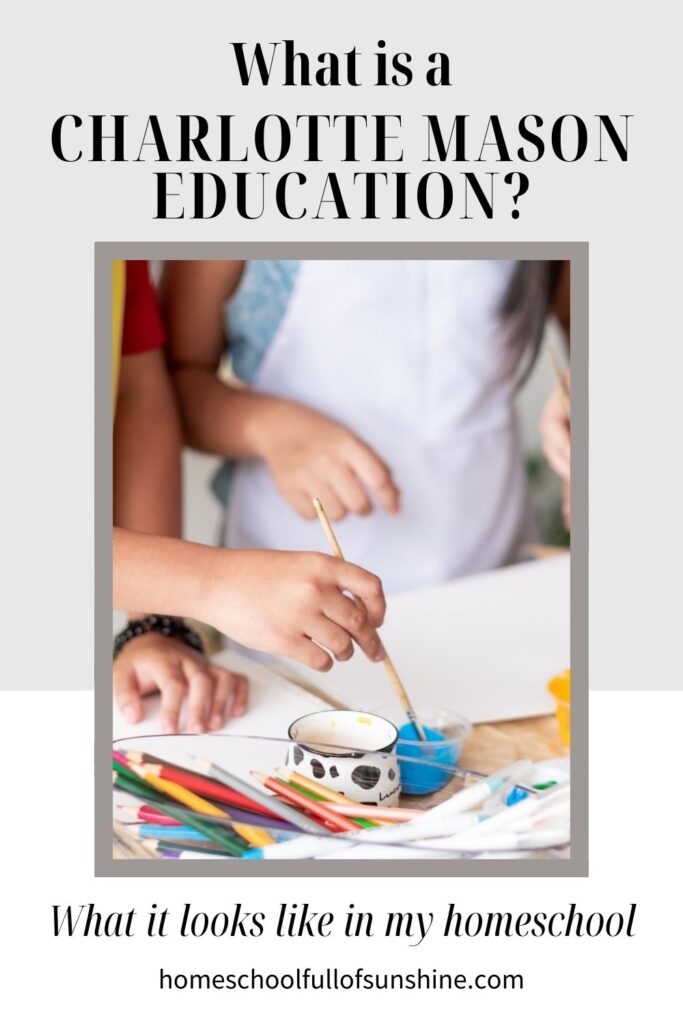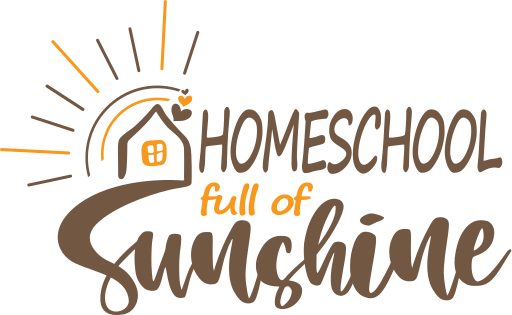
By: Marissa Gorski
If you’ve been scrolling homeschool feeds on Instagram lately, I feel certain you have probably stumbled across #charlottemason at least a few times. And maybe you’re well versed in her philosophy, maybe you’re curious what all the fuss is, or maybe you’re looking for some clarity as to what wisdom this teacher/educational philosopher from the 1800’s could possibly have that still applies today. I certainly hadn’t heard of Charlotte Mason when we began our home educating journey. Her philosophies were never mentioned in any of my education or post secondary child psychology classes. And yet now, having read many books about her and her philosophies, many of her own volumes, and having listened to countless podcasts praising her work, I feel quite strongly that learning a little bit about what she thought in regards to educating children can add some real beauty to your homeschool days.

So where to begin? Perhaps with one of Mason’s most quoted statements: “Children are born persons”. She believed, slightly opposite to many other theorists at the time, that children are not empty vessels to fill with what knowledge we deem useful. They are not blank slates to write upon, but “born persons” with their own unique needs, thoughts, and characters. To hold that belief is to truly see our children for who they are. And in seeing them clearly, we can determine the best way to reach their hearts, to support their individual learning needs, and to achieve our educational goals.
It’s hard to think of summing up her philosophies in one blog post but there are many authors out there who can more eloquently expand on her work. A few that have provided me with much insight and inspiration over the years (and that are a great jumping off point for those new to Mason’s methodology) are:
- Modern Miss Mason by Leah Boden
- For the Children’s Sake by Susan Schaeffer Macaulay
- A Charlotte Mason Education by Catherine Levison
- Mother Culture and A Charlotte Mason Companion by Karen Andreola
- And of course Mason’s own volumes: Home Education, School Education, Formation of Character, A Philosophy of Education, Parents and Children, and Ourselves.
In these books, you will find the biographical context needed to fully understand how Mason formulated her theories on education. You’ll also find real, tangible steps you can take to implement a Charlotte Mason education at home. In our homeschool, we utilize many Charlotte Mason inspired book lists. Namely Ambleside Online, which is a free CM resource/curriculum. We also follow her suggestions regarding nature study, and occasionally artist and composer studies.
One area, however, where we stray from the Charlotte Mason method is narration. Mason felt very strongly that the child ought to “tell back”, or narrate, after readings (whether that’s after being read aloud to or independently reading, and whether that’s an oral or a written narration). By telling, in their own words, what the child has remembered from a reading, they are making that knowledge their own, assimilating it with what they already understand, and as many studies prove, thus retaining the information that now belongs to them. It is perhaps for a lack of consistently trying that narrations haven’t worked for us. I hope we can improve on that as my children get older. We do occasionally attempt a notebook entry after a reading and I enjoy that as a way to keep track of topics we’ve covered.
Aside from narrations, another common Charlotte Mason identifier would be ‘living books’. That term basically encompasses books written in a narrative style, typically by one passionate author who is well versed in the subject on which they are writing. Living books are often going to read the way a story would, capturing the child’s attention with rich language and vivid detail. They may also show up as biographies and, in my opinion, that can make for a great addition to subjects where your child may not show immediate interest. For example, this past year we really enjoyed biographies of scientists and mathematicians; my favourite probably being Archimedes and the Door of Science by Jeanne Bendick. What a way to bring science and math to life!
Charlotte Mason wasn’t only interested in educating children. A very large part of her life was spent dedicated to training teachers (or governesses given the time period). At her teacher training centres, she instructed her teachers to provide the children in their care with a rich and varied education, to include well-researched living books, to offer plenty of time outside, to keep lessons short, and to “bring delight”. Aren’t those suggestions just as applicable for parents choosing to educate at home today? Additionally, she felt that the child’s age and stage should be valued and that collaboration with others was imperative to their development. Another nod to one of the many benefits of the multi age learning settings that homeschooling provides! “Walk with the wise and become wise”!

I think one last thing I feel is important to discuss when we’re talking about Charlotte Mason, and one that you’ll often see online, is the concept of ‘mother culture’. Though this phrase apparently can’t be directly attributed to Mason, it definitely reflects how much value she placed on her teachers self-educating, self-improving, and having their own work/hobbies to enjoy alongside the children in their care. From what I understand, the term was originally used in a Parent’s Review article and refers to the idea that “mothers should cultivate their souls so that, in turn, they may cultivate the souls of their children.” We can’t just parent on auto-pilot! We are called to care for and teach these little souls, we ought to give them our best selves, and we ought to care for ourselves so that we have the best to offer them. In her book Mother Culture, Karen Andreola responded when asked to define ‘mother culture’ with “Mother culture is the skilful art with which a mother looks after the ways of her household and herself. In her home, she creates a culture all her own with a mingling of love and responsibility.” The ways in which I implement this concept in my own home are simple. I model for my children the things I hope they will cultivate in their own lives. I let them see me read, knit, clean, bake and cook for others. I let them see me pursing my own interests. If they see us placing value on that which is true, good, and beautiful, my hope is that they will also hold these things in high esteem.
Children as born persons, living books, narration, nature study, and mother culture; these are only a few of the concepts identified as having roots in Charlotte Mason’s philosophies. If any of these interest you, I highly recommend reading further. Mason’s own volumes (of which there are six) are likely best, but many of the more modern titles listed above can offer tons of valuable information!
I hope you’ve enjoyed this little introduction to Charlotte Mason and I strongly encourage you to fully dive into her volumes if you’ve found any of this intriguing!
If you’d like to connect and continue this discussion online, feel free to follow me on Instagram @marissa.at.home where I typically share snippets of our days home educating and what I’m reading.
And don’t forget to comment below with your favourite Charlotte Mason inspired teaching philosophies.



